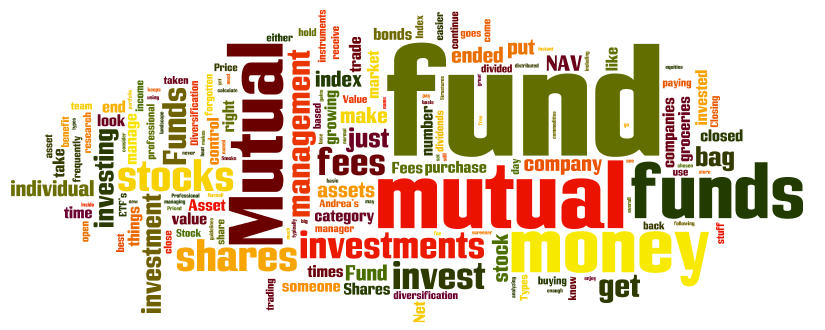What is a Mutual Fund
Post on: 31 Март, 2015 No Comment

Your e-mail has been sent.
Mutual funds are investment strategies that allow you to pool your money together with other investors to purchase a collection of stocks, bonds, or other securities that might be difficult to recreate on your own. This is often referred to as a portfolio. The price of the mutual fund, also known as its net asset value (NAV), is determined by the total value of the securities in the portfolio, divided by the number of the fund’s outstanding shares. This price fluctuates based on the value of the securities held by the portfolio at the end of each business day. Note that mutual fund investors do not actually own the securities in which the fund invests; they only own shares in the fund itself.
In the case of actively managed mutual funds, the decisions to buy and sell securities are made by one or more portfolio managers, supported by teams of researchers. A portfolio manager’s primary goal is to seek out investment opportunities that help enable the fund to outperform its benchmark, which is generally some widely followed index, such as the Standard & Poor’s 500 . One way to tell how well a fund manager is performing is to look at the returns of the fund relative to this benchmark. Note that while it may be tempting to focus on short-term performance when evaluating a fund, most experts will tell you that it’s best to look at longer-term performance, such as three- and five-year returns.
The case for mutual funds
For the average small investor, mutual funds can be a smart and cost-effective way to invest. You don’t have to have a lot of money—most funds will let you buy shares with as little as $2,000 up front and invest as little as $50 per month. Buying shares in a mutual fund is also an easy way to help diversify your investments, which is really another way of saying that you won’t have all your eggs in one basket. For instance, most mutual funds hold well over 100 securities. For someone with just a few thousand dollars to invest, building and managing a portfolio containing that many securities could potentially be highly impractical, if not impossible.
Professional management
As a mutual fund investor, you get the benefit of having a professional manager reviewing the portfolio on an ongoing basis. Professional portfolio managers and analysts have the expertise and technology resources needed to research companies and analyze market information before making investment decisions. Fund managers identify which securities to buy and sell through individual security evaluation, sector allocation, and analysis of technical factors. For those who have neither the time nor the expertise to oversee their investments, this can potentially be invaluable.
Liquidity and convenience
All mutual funds allow you to buy or sell your fund shares once a day at the close of the market at the fund’s NAV. You can also automatically reinvest income from dividends and capital gain distributions or make additional investments at any time. For most stock funds, the required minimum initial investment may be substantially less than what you would have to invest to build a diversified portfolio of individual stocks.
Tax considerations
The securities held within the portfolio often pay dividends or interest. Securities can also be sold by the fund manager after rising in value. These types of events can help generate income for the fund, which by law must be paid out to investors in the form of periodic distributions. For the most part, investors who own shares in the mutual fund at the time these distributions are made are responsible for the taxes on that money. However, the income from funds that invest in municipal bonds may be exempt from federal, and in some cases, state taxes.
Investors who own mutual funds that are not held within an IRA or another tax-advantaged account may be subject to three different types of taxes:
- Dividend income, which is generally taxed at your ordinary income tax rate.
- Capital gains from the sale of securities, which can be taxed at your ordinary income tax rate or the more favorable long-term capital gains rate, depending on how long the securities were held by the fund.
- Capital gains when you sell or exchange shares of the fund at a profit. Those capital gains could also be taxed at your ordinary income tax rate or the more favorable long-term capital gains rate, depending on how long you held those shares.
There are a variety of fees that may be associated with mutual funds. Some funds come with transaction charges known as loads or redemption fees, which are fees you pay to buy or sell shares in the fund. Note that all Fidelity funds are no-load funds, which means you pay no transaction fees when you buy those funds through Fidelity. All funds charge management fees which are used to cover the expenses incurred by the fund. Examples of these expenses include paying the fund manager and the research staff, as well as transaction costs associated with buying and selling securities. When evaluating a fund, remember that fees play a factor and may potentially detract from a fund’s performance over time.














